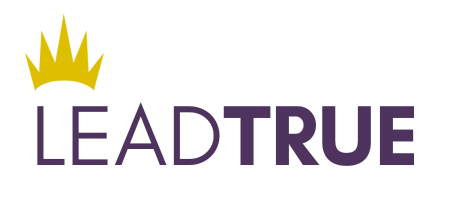What Matters Most to You
As a leader, you are often responsible for making important decisions. At its core making the right decisions boils down to answering the question “What matters?”. When it's your responsibility to answer this question, it is important to consider the different perspectives involved, each with its own idea about ‘what matters’. This can be challenging to incorporate into a decision-making process that is inflexible and out-of-date.
As a leadership consultant, I travel the country conducting business lectures to “C suite” executives, vice presidents and middle managers. Regardless of the topic, participants always have complaints about the way their organization operates.
Eventually the conversations boil down to the reality that the employee and their leadership (bosses, Board of Directors, stock holders etc.) simply have different values. Employees who deal with customers hold a set of values for the product/service. Executive decision-makers have another set of values which influence their decision-making.
Determining what matters and identifying values is not only important for executive decision-makers. Every individual involved should have a clear idea of what matters to them by identifying their personal values.
Values are guideposts - bumpers, - to tell you when you are lined up with what you want for yourself. They tell you what you can and cannot live with. Making decisions that do not align with what matters can make you “soul sick”. This results in you feeling irritable, impatient, aggressive, angry, or judgmental. Moreover, at the end of an argument or conflict, your values can be great tools. They can help you to determine whether you handled yourself in a way that exhibits your unique commitments.
My clients have had great success when they:
Identify their values.
Identify their organization's values. They do this not by reading the mission statement, but by analyzing how the company behaves.
Choose. They can then choose to stay or make a plan for a job change with awareness.
When coaching clients choose to stay with their company, they relax their ideas of what should be and realize that good enough is good enough.
When they choose to leave, clients have success in the transition as well as in their new job because they are determined to pick a company with similar values. Here are some questions I ask of my participants and clients to support them through coaching:
What’s most important to you? Write a list of your values. For example: family, spirituality, laughter, contributing, community, fidelity, wealth, health etc. Add to this list as realizations come to light.
How often do you consider your values to make tough decisions?
How do you feel when you’ve ignored your values?
Think of an example of when you made a choice outside of your values. What were the external consequences? What were the internal, emotional or physical consequences?
Your values are your guideposts. No matter what question, decision, or argument you have to solve, starting with identifying what matters most to you. Taking ownership of your values can help simplify your decision-making process. They are signs in the road when attempting to make strong decisions. For example, when you are deciding whether or not your company values are the same as yours. If not, it may be time to make a plan to find work that is in alignment with your values and goals. When your work values are complementary with your personal values everything becomes easier!
About the Author
Betsy Sobiech, a Lead True Global Leader, is an expert in organization development, human behavior, training, systems thinking, communications and coaching.
Betsy has worked with organizations such as Exxon Mobil Aviation, Hewitt Associates, Nicor Gas, Clearbrook, Center for Sight and Hearing, Mercy Home for Boys and Girls, St. Gregory the Great High School, Standard Parking, Allstate, McDonald’s, Mesirow Financial, and PepsiCo.







Explore the art of cultivating meaningful connections in an increasingly digital landscape in this blog article.